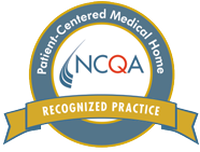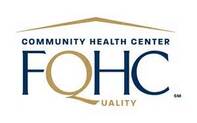Your child's provider can identify developmental milestones during well-child visits, including behavioral, learning, and physical changes.
Developmental milestones for children aged 11 to 14 years include:
Developmental milestones for children aged 11 to 14 years include:
- Increased desire for independence and privacy
- Mood swings
- Heightened concern about peer opinions
- Improved problem-solving skills
- Developing a sense of morality
- Challenging rules and parental advice
- What physical changes will my child go through?
- During puberty, children aged 11 to 14 experience physical changes as their bodies develop into adult bodies
- Puberty typically starts in girls between ages 9-13 and in boys between ages 10-13. Parents can seek more information to discuss puberty with their children
- Support your child through puberty by providing information about the changes and encouraging open discussions with a provider, teacher, or school nurse
Looking Ahead
School
Encourage teens to engage in various activities like music, arts, sports, and clubs. Acknowledge achievements and offer support where needed. Provide a quiet homework space and minimize distractions. Address struggles with schoolwork by collaborating with school staff. Monitor peer influences to prevent risky behaviors like drinking or smoking.
Self
Spending quality time daily with your teen is vital. This includes sharing meals, being active, and having meaningful conversations. Establish clear rules, fair consequences for breaking them, and praise good decisions.
Be prepared to answer questions about puberty and associated feelings.
Encourage teens to maintain hygiene by bathing, using deodorant, brushing teeth, flossing, and seeing a dentist regularly. Watch for signs of depression like irritability, sadness, loss of interest, poor grades, and suicidal talk.
Safety
School
Encourage teens to engage in various activities like music, arts, sports, and clubs. Acknowledge achievements and offer support where needed. Provide a quiet homework space and minimize distractions. Address struggles with schoolwork by collaborating with school staff. Monitor peer influences to prevent risky behaviors like drinking or smoking.
Self
Spending quality time daily with your teen is vital. This includes sharing meals, being active, and having meaningful conversations. Establish clear rules, fair consequences for breaking them, and praise good decisions.
Be prepared to answer questions about puberty and associated feelings.
Encourage teens to maintain hygiene by bathing, using deodorant, brushing teeth, flossing, and seeing a dentist regularly. Watch for signs of depression like irritability, sadness, loss of interest, poor grades, and suicidal talk.
Safety
- Talk to your teen about the dangers of smoking, vaping, alcohol, and drugs.
- Teens should always wear a seatbelt while in a vehicle. Tell your teen to never get into a car with a driver who has been drinking or doing drugs. Instead, let your teen know to always call you for help.
- Remind your teen to wear a helmet while riding a bike, skateboard, or scooter. Your teen should wear the right protective equipment, like mouth guards and pads, when playing sports.
- Teens should apply sunscreen of SPF 30 at least 15 minutes before going outside and reapply about every 2 hours.
- Monitor and control your teen's internet use by placing the family computer in a visible location, installing safety filters, and checking browser history.
- Talk to your teen about online safety, and using social media wisely.
- Ensure your teen has essential needs met like food, housing, and health insurance. Consult your doctor for community resources or a social worker referral if needed.







